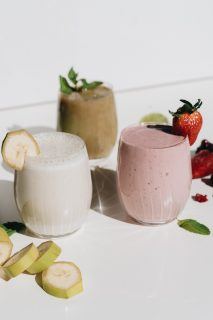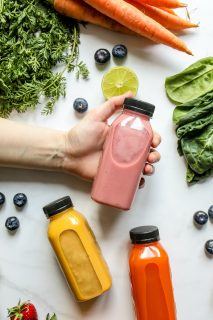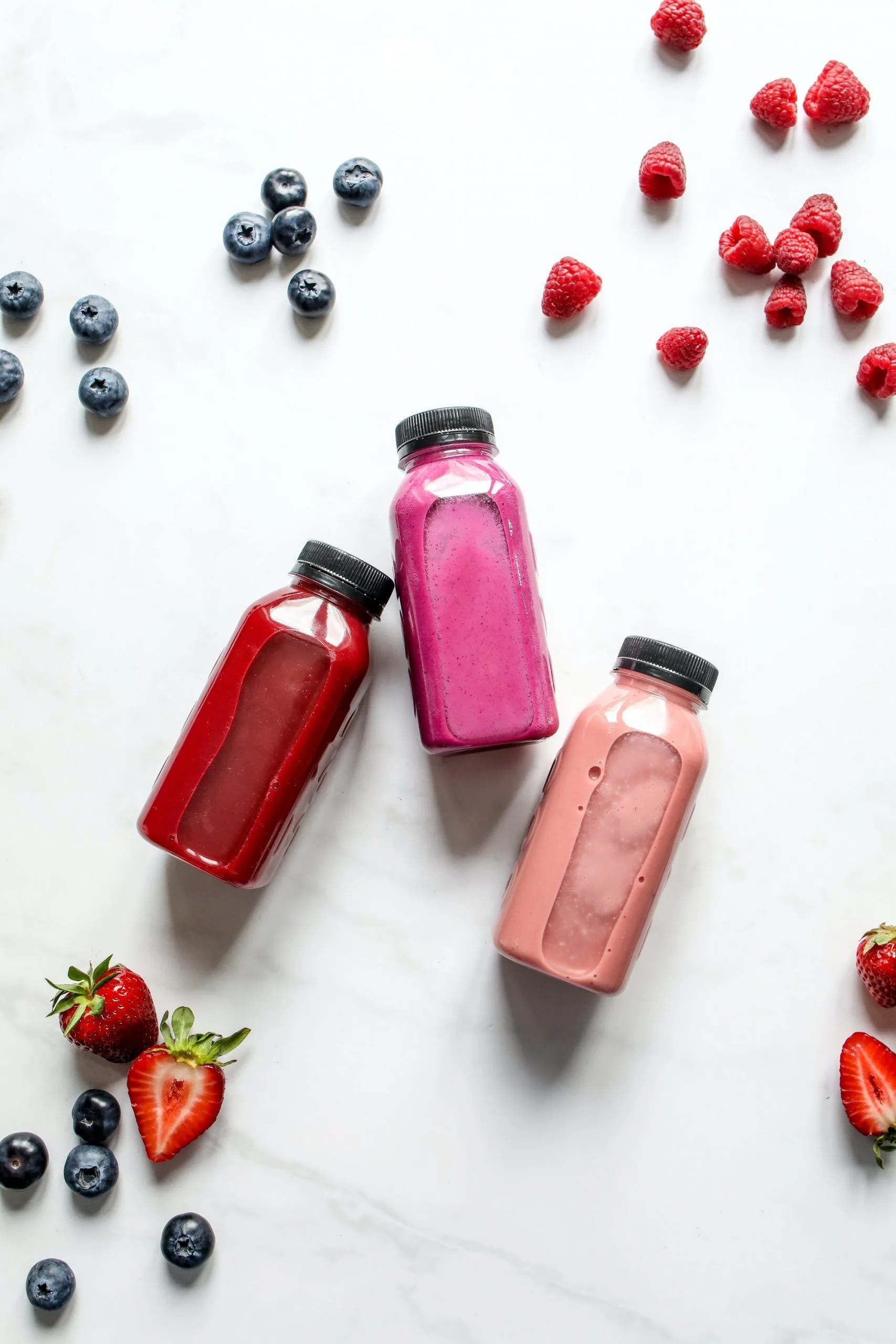Over recent years, smoothies have grown in popularity. It’s fairly easy to see why…they’re easy to make at home and easily portable. It’s also a great way to get all your fruits, veggies, and protein in one go. They are often marketed as a health food, but can be full of sugar and other harmful ingredients. So are they actually healthy or not? In this article, we’ll take a look at the various kinds of smoothies and their potential health benefits (or lack thereof).
What is a smoothie?

Photo by alleksana from Pexels
A smoothie (also sometimes spelt smoothy) is a drink with the same consistency as a milkshake. Mostly, they are thick and creamy and are made from ingredients such as puréed fruits, vegetables, juices, yogurt, nuts, seeds, and/or dairy or nondairy milk. Usually, smoothies are made using a base (the fruits and veg) and a liquid (the yogurt and milk). These ingredients are blended according to your preference. You can then add more ice cubes or frozen produce to create the desired consistency. The flavor profile and indeed consistency will vary depending on what ingredients you decide to use.
What are the different types of smoothies?
Usually, smoothies fall into one of three categories; fruit, green or protein smoothies. Often, however, there is an overlap between the categories, and smoothies can fit into more than just one.

Photo by Cup of Couple from Pexels
Fruit Smoothies: This is made of fruits (pureed or frozen) that are blended with either one or a mixture of fruit juice, water, milk or, even ice cream. I might argue that the addition of ice cream makes it more of a milkshake, than a smoothie but that’s just me – as well as most health experts.
Green Smoothies: Green smoothies are usually packed with green vegetables and fruit. They taste better if they are blended with water or juice for extra sweetness.
Protein Smoothies: A protein smoothie is usually made with one fruit or vegetable, a liquid, and a major protein source. The protein will usually be greek yogurt, cottage cheese, silken tofu, or protein powder.
Some potential benefits of smoothies
Boost your fruit and veg intake: Frozen or fresh produce contains a variety of nutrients, which can help improve your overall health. These include vitamin C, beta-carotene, and lycopene. The WHO advises that adults consume at least 5 fruits and vegetables a day. However, most of us fall short of this guideline. To meet this goal, you should increase your fruit and vegetable consumption by at least 2 to 3 times. Smoothies, which are rich in fruits and vegetables are a good way to do this.
They could help to increase fiber intake: Fibre is an important component of a healthy diet; it can help support the growth of healthy bacteria in your gut. It can also help to reduce constipation and support the digestion of nutrients. A healthy and adequate fiber intake, however, many of us don’t meet our daily fiber needs. According to a study, Americans consume only 16 grams of fiber each day. To get the most out of your fiber-rich food, choose the right ingredients and make sure they’re incorporated into your smoothies.
Watch out for the sugar

Photo by Polina Tankilevitch from Pexels
The quality of the ingredients and the quantity of any added sugar are the two main factors that determine the health benefits of a smoothie. High added sugar levels can increase the risk of chronic diseases such as diabetes and heart disease. The American Heart Association suggests that we limit daily added sugar intake to no more than 9 teaspoons. Eating too much added sugar can increase your risk of heart disease.
Some of the more common sources of added sugar to watch out for include non-fat dairy products, fruit-flavored sauces, and protein powders. Instead of using honey or maple syrup to boost sweetness, use whole fruits such as bananas. To avoid added sugar, opt for whole food smoothies instead of just fruits. If it’s pre-made, you can also find out whether there is any added sugar by checking the label.
The takeaway
Whether or not a smoothie is a healthy option is really down to what ingredients are used in it. If you’re making your own smoothies at home and they’re full of whole foods and fruits, they likely are a healthy option. The most important thing to be aware of is how much sugar is in the smoothie. You don’t want an overload of sugar, so make sure you know what it is you’re drinking. If there’s too much added sugar, you can kiss any potential health benefits goodbye.
References
https://www.healthline.com/nutrition/are-smoothies-good-for-you#basics



![women [longevity live]](https://longevitylive.com/wp-content/uploads/2020/01/photo-of-women-walking-down-the-street-1116984-100x100.jpg)










